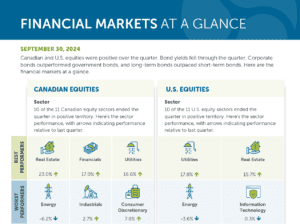3 Ways to Help Portfolios Get Ready for a Recession: Benz

What You Need to Know
High-quality bonds tend to perform well in recessions, Benz said.
She suggested focusing on stocks representing items people pay for even in a recession.
Some equities that have performed well this year might underperform in a recession, Benz noted.
Clients may be asking how their portfolios can be protected from the economic slowdown that many market experts have been forecasting.
Christine Benz, Morningstar’s director of personal finance, recently posted suggestions on several ways investors can recession-proof their holdings, which advisors may want to review, too.
Clients thinking about repositioning for a recession or economic softening might consider high-quality bonds, as well as stocks focused on health care and consumer staples, Benz recommended in a video posted this week on Morningstar.com.
Girding for a slowdown may mean trimming positions in some investments that served clients well in this year’s first half and expanding others that dragged portfolios down during the market volatility.
“The really tricky part of this recessionary talk is that the categories, the hardest-hit categories, some of them, especially in the fixed income space, are the things that you want in your portfolio in a recessionary environment,” she said.
High-Quality Bonds
“High-quality bonds tend to be very, very good performers in recessionary environments, in part because recessionary environments typically spur a flight to quality, and high-quality bonds are one of the key high-quality investments that investors look to — but also because interest rates often decline in recessionary periods, which makes high-quality bonds worth more. It elevates high-quality bond prices,” she said.
Investors “might be inclined to throw bonds overboard given how poor their performance has been in the first half of 2022,” Benz said, but “they tend to be good ballast for equities in some sort of an economic weakness or recessionary environment.”
Benz cautioned against “drastic all-or-nothing measures with respect to your fixed income exposure in your portfolio,” suggesting that investors maintain “some exposure to high-quality bonds to protect you in a recessionary scenario.”
As for the complexion of that bond exposure, “I would definitely broaden beyond investment-grade corporates to encompass Treasuries and government-agency bonds as well,” she told ThinkAdvisor via email on Friday.
“Government bonds tend to be natural beneficiaries in the flight to quality that we often see during periods of economic worry and weakness. Moreover, they are the most interest-rate sensitive, so if lower interest rates eventually materialize, they’ll tend to benefit more directly from that action than other bond types,” Benz added.
Health Care, Consumer Staples Stocks
Some equity moves that could be helpful may also feel counterintuitive, according to Benz. She noted that commodities and energy stocks, which have held up well in this year’s rough market, could underperform in a weaker economy: “You want to be careful about overdoing them because of their sensitivity to the economic environment.”






